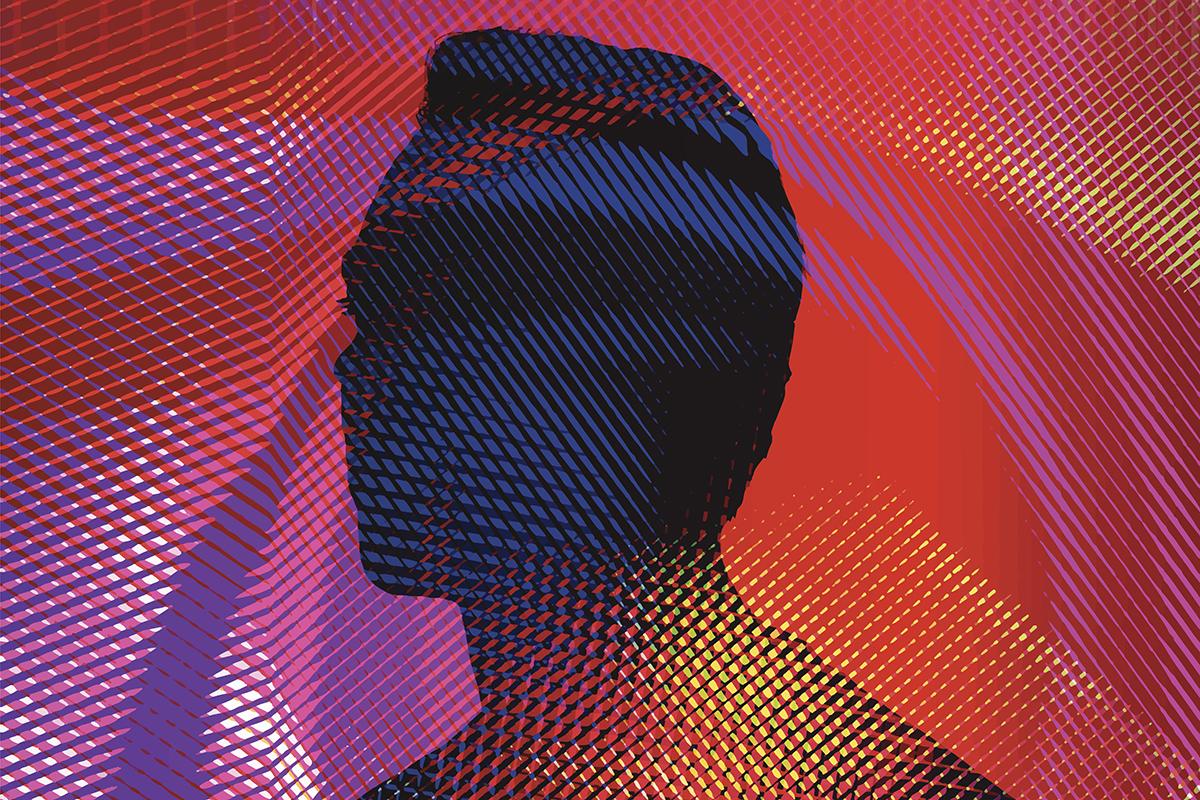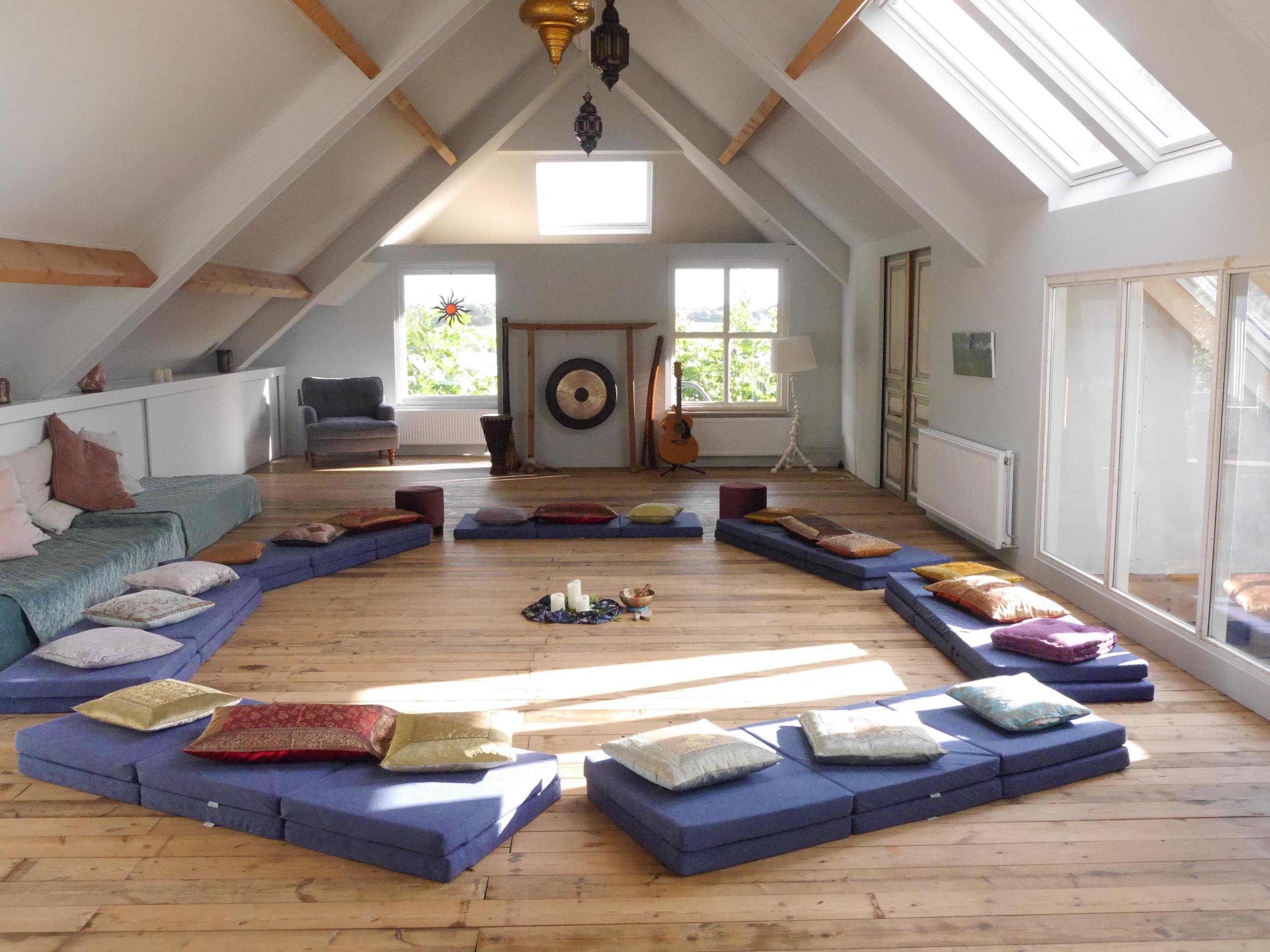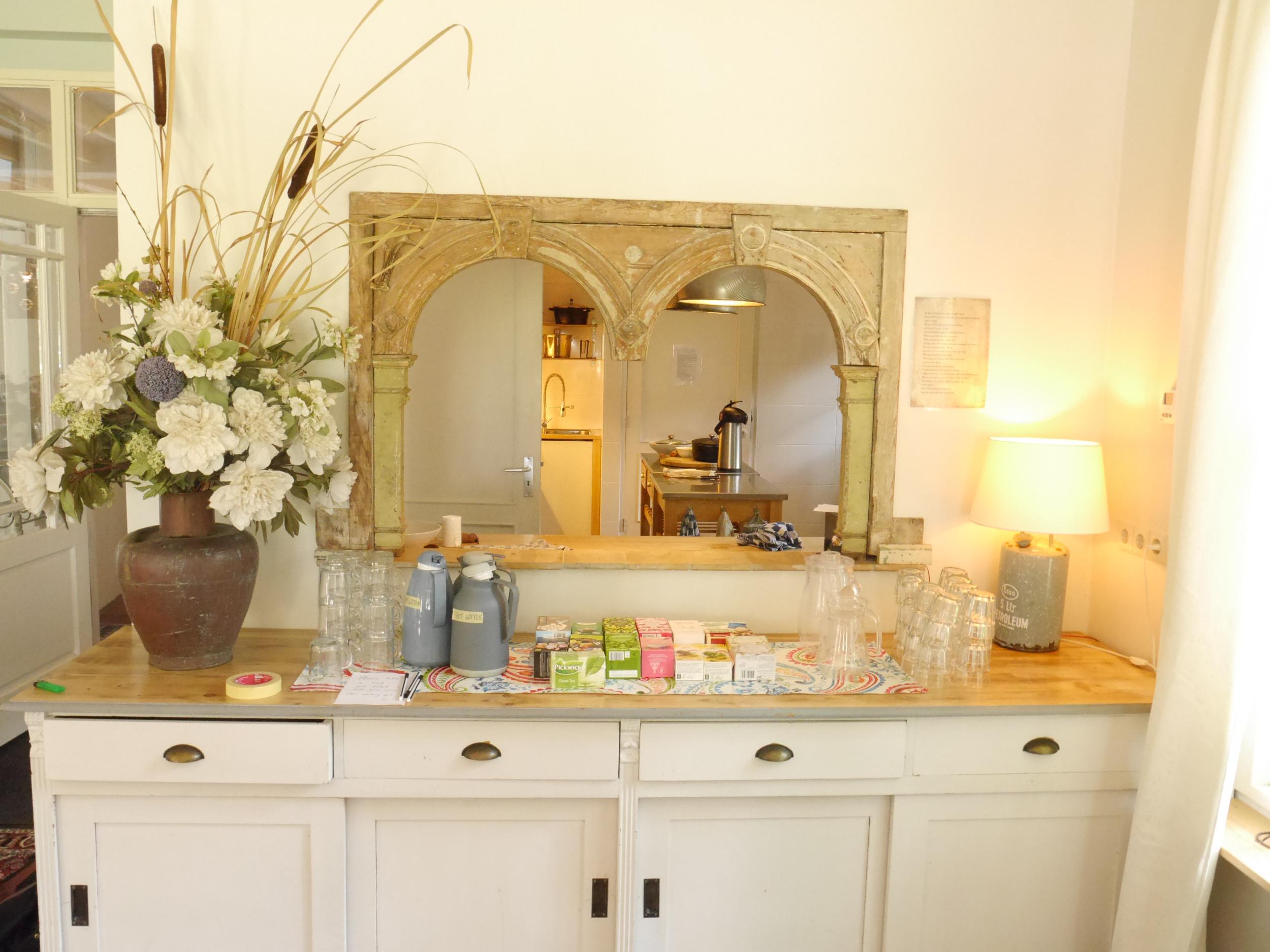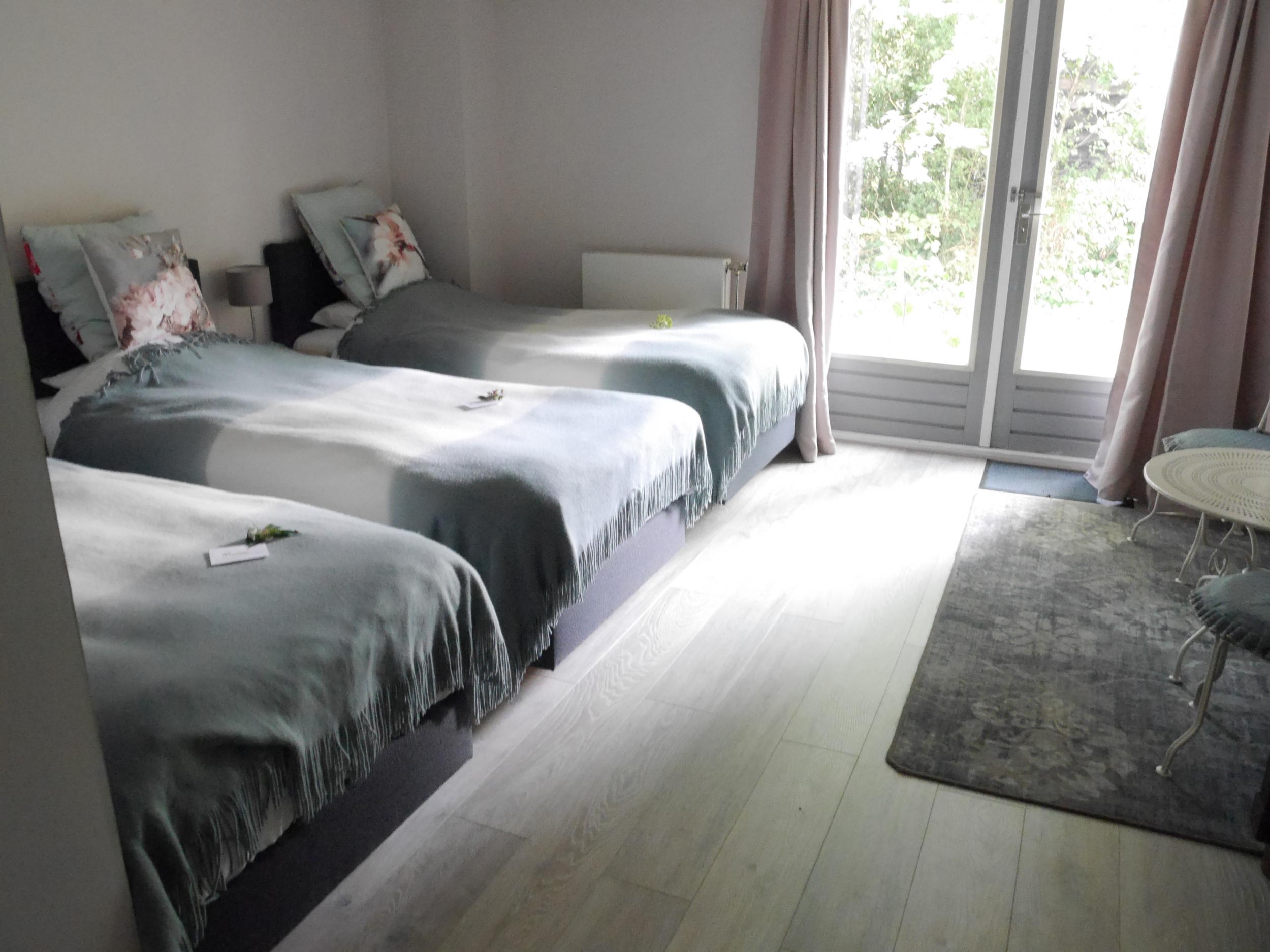What it’s like to take part in a psychedelic retreat in the Netherlands
As the health benefits of psychedelics become more widely understood, people are travelling to the Netherlands to take part in hallucinogenic retreats. Gavin Haines went tripping

After my third cup of magic truffle tea I lay in bed, put on my blindfold and waited for the psychedelics to take hold. I was a passenger now, at the mercy of a mercurial hallucinogen that was about to send me on a profound journey into my subconscious.
I’d flirted with psychedelics before, recreationally, but this was different; this time I was taking them on a guided retreat and the idea wasn’t to get out of my head, but to go in, hence the blindfold.
The retreat was organised by the Psychedelic Society of London, a nonprofit organisation that believes the conscious use of psychedelics can create a more compassionate and joyful world. The society campaigns for public access to hallucinogens, which have been taken by humans for millennia, but were made illegal in many countries as part of the controversial war on drugs (it’s currently a class A drug, meaning those caught in possession in the UK can be arrested and charged).
The society’s assertions are broadly supported by new psychedelic research, which suggests psilocybin – the active ingredient in magic mushrooms – can provide effective treatment for depression, anxiety, stress and addiction, particularly when combined with supportive care.
Researchers at King’s College London, a world leader in psychedelic research, are so convinced by the results of recent studies that they reckon hallucinogenic trips will be available on prescription in the UK within five years for people with depression.
Some folk can’t wait till then and are travelling to the ever-enlightened Netherlands, where psilocybin in truffle form is legal and as readily available as edam. The fungi can be purchased in so-called smart shops, and have fantastical names such as Valhalla, Purple Rain and Dragon’s Dynamite.
It was in one of these shops, on the edge of Amsterdam’s louche but gentrifying red light district, that the Psychedelic Society arranged for participants taking part in the retreat to meet one December afternoon before Christmas.
We were a motley bunch. Almost evenly split along gender lines, we came from the US, UK, Canada, Norway and South Africa. The youngest was 30, the oldest 72. There were therapists, entrepreneurs, teachers, a lawyer, a nurse and a comedian. The group, though, was exclusively white.
In the incense-infused shop we were welcomed by Hana, a ukulele-toting facilitator from the Psychedelic Society. She advised us what truffles to buy (two packs of High Hawaiians, weighing 22g each; chosen for their visuals) and took them from us for safe keeping. Hana then led us to a nearby coach, whose driver was a good sport about listening to psychedelic music for two hours while driving us to a house in the country.

At the rambling rural pile, we were greeted by the other facilitators – Josh, Biz and Lana – who were charmingly assertive as they asked us to put our phones in a box for the next five days. I winced, firing off a text to my wife before obliging. Five days later I’d feel more anxious about retrieving it.
After settling into our dorms, we had an ice-breaker dinner – vegan, as all meals would be – prepared by two delightful chefs, Larissa and Renata.
Then came the first of many “sharing circles”, which took place in a cavernous loft room with wooden floorboards and views of farmland and forest. We sat cross-legged around a candle-lit altar and listened as Josh laid down some ground rules for the five-day retreat (no sex, drugs or booze), before passing around a stone, which dictated whose turn it was to share why we were there.
We all had our reasons: some felt emotionally numb, a bit hollow, superficial; others were simply curious. I certainly was. I also felt stressed about the climate crisis and recent general election, and was angry and frustrated at some people in my life. I’d hit a creative nadir, too – I was writing a novel, only I wasn’t. And I’d been boozing too much, not eating properly and barely exercising, which wouldn’t do with a child on the way. Yeah, there was that, too: fatherhood. I was desperate to be a good dad, a positive role model.

It felt good to talk and we talked a lot over the next five days. We danced and sang, too, did yoga and creative writing and meditation. I know what you’re thinking: sounds hippyish, and it was. But it felt really good. We started to wonder whether we even needed the psychedelics.
The group exercises were emotionally exposing, but helped us shed our inhibitions, share our vulnerabilities and build trust. We formed a tight bond and, with the help of the facilitators, created a safe, non-judgemental space in which to express ourselves. We were ready for the “truffle ceremony”.
Well, almost. Before the ceremony we had one-to-ones with the facilitators, who wanted to see how we were feeling (me: apprehensive, excited). Mine was with Josh, who deemed me resilient and experienced enough for a full pack of truffles followed by a small top-up, another third of a packet, which he suggested would help me go “further in”. After our chat I went for a walk outside, during which I contemplated the flatness of the landscape and uncoincidental openness of the Dutch people, whose tolerance makes these retreats possible.
The truffle ceremony, then. It took place in the room with the wooden floorboards, which now contained 13 beds – one for each participant – and looked like a kind of hippy hostel. In bed we were reunited with our truffles, which smelt earthy and unappealing. We spooned them into our mugs and waited as the facilitators came around with pots of ginger tea, which failed to conceal the rancid taste of the truffles. We drank the murky infusion in silence, exchanging smiles of encouragement. Kisses were blown. Then the blindfolds went on.

Other people’s hallucinations don’t often make for compelling reading, so I’ll cut to the gritty stuff. You see, after two hours of beautifully absurd, psychedelic visions, my mind went to a painful chapter of my recent past, when I stupidly tried to ride my bike across London drunk. I woke up in hospital, attached to machines, bleeding from my ear, alone. I got off lightly with stitches, concussion and PTSD, which I was subsequently treated for.
As I contemplated the reckless manner in which I’d nearly thrown it all away – and the worry I inflicted on others – I cried. At that point an angel in a floaty white dress came over to comfort me; the angel was in fact one of the facilitators, whose features looked celestial on psilocybin.
She wiped tears from my eyes (I’d taken off my mask) and held my hand for a minute, or an hour, I don’t know. The waves of sadness soon became ripples of laughter.
Suddenly most of the group were laughing. It was comforting to hear, but unnerving also to hear vomiting. Our collective guffawing was no coincidence; the accompanying playlist, as used in the clinical trials, was designed to be emotionally evocative. Later, the music would invoke the people I felt angry and frustrated at; negative feelings that dissolved into compassion and empathy.
I’ll leave it there for the trip. There was more, of course – it lasted six hours – but some of the stuff is too personal to publish and the rest I’m still processing.
The remaining two days were devoted to sharing our trips and learning how to bring our psychedelic insights, if we had any, into the “real world”. I was struck by how different everyone’s experience had been; some found it profound and therapeutic; others, hedonistic; a couple seemed bemused and mildly disappointed (one spent it thinking she was Woody Allen). We all agreed, though, that we’d got something out of it, not least each other (we still keep in touch via WhatsApp).
After I got home, I called Dr James Rucker, who leads the psilocybin trials at King’s. I asked him why I had revisited my bike accident on the trip and why I now felt a compulsion to look after myself, as manifested by me sleeping and exercising more, drinking less and eating healthier food. Since the retreat, I’ve also stopped biting the skin around my fingernails, a habit I’ve had since childhood, and generally feel calmer and more patient.
“It’s common that the drug can take you back to something you thought you’d got over, when actually there was still something to process,” he explains, adding that seeing my wounded self probably triggered self-compassion. “That’s the element of the drug that’s difficult, but also where the value lies.”
I also quizzed Dr Rucker on my subsequent creative boom (the novel is back on), which he said was also a regular post-trip experience. “Psilocybin introduces an element of uncertainty into our otherwise quite precisely regulated brains,” he says. “It’s within that uncertainty that the potential for creativity arises.”
Trials are ongoing and, while the results have been encouraging, researchers are explicit about the potential dangers of people going on self-guided truffle trips. “It could end up being a trauma in itself and exacerbating the original problem,” explains Dr Rucker.
Psilocybin is not a panacea for poor mental health, nor constipated creativity, and is most effective when combined with supportive care. As Biz Bliss, one of the Psychedelic Society’s facilitators, likes to say: “It’s not magic, it’s hard work.”
Hard work, certainly, but also, perhaps, a little magical.
Travel essentials
The Psychedelic Society runs retreats every month; applicants are screened and can’t take part if they’ve had psychosis or other serious mental health conditions. Fees are income-based, but start from £650, excluding travel to Amsterdam, transfers (£70) and truffles (£50). Bursaries are available.
Magic mushrooms are a class A drug; it is illegal under UK law to have this type of magic mushroom for personal use yourself, to give it away or to sell. For more information, advice, and support, you can call FRANK anytime on 0300 123 6600 for confidential advice
Read More: Best hotels in Amsterdam
Join our commenting forum
Join thought-provoking conversations, follow other Independent readers and see their replies
0Comments